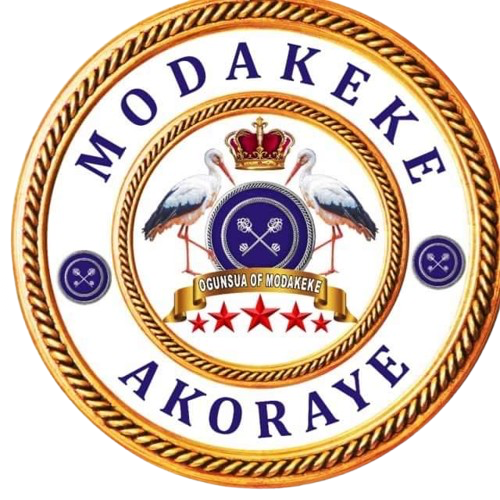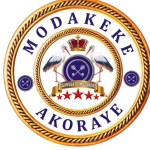About Us One Column
Ogunsua-In-Council
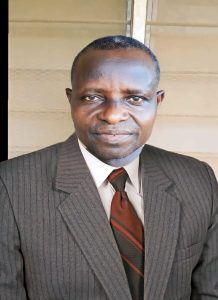
ALH. OYEJIDE AKINLABI AKINWALE
(National Vice President)
Alhaji Oyejide Akinlabi Akinwale was born over six decades ago to the family of Late Pa Abdulazeez Akano Akinwale and Late Mrs Ummul-Hani Ayanwumi Akinwale of Ajagbonegun Compound, Boosa Quarters, Modakeke.
Alhaji Oyejide Akinlabi Akinwale attended the following educational institutions;
✓ L.A Primary School Amuda-Oba, Modakeke
✓ Modakeke High School, Modakeke.
✓ Government Teachers College, Ilesha, Oyo State.
✓ Oyo State College of Education, Ilesha, Oyo State and,
✓ University of Ilorin, Ilorin, Kwara State.
Alhaji Akinwale began work as a Class Teacher at the following schools;
✓ Ara Community Grammar School, Ara Joshua in the present Ife South LG Area.
✓ Moremi High School, O.A.U, Ile Ife
✓ Ogunsua Grammar School, Modakeke.
✓ Modakeke Islamic Grammar School, Modakeke.
He rose through the ranks to become a Principal, and served in the following schools:
✓ Modakeke Junior High School One, Modakeke.
✓ Baptist Middle School, Modakeke.
✓ Modakeke Islamic Grammar School, Modakeke, where he eventually retired from active service.
He has been an active community leader with the following socio-religious engagements. He’s the Secretary, Modakeke Cooperative Leaders Association till date, a former Modakeke Progressive Union’s National Secretary, and the incumbent National Vice President, Modakeke Progressive Union. He’s the Treasurer, Modakeke Muslim Development Association, Financial Secretary, Modakeke New Central Mosque Building Committee, Member, Zumuratul-i-Ujjaj of Modakeke, Member, Modakeke Muslim Education Committee, and a Member of the Ogunsua-in-Council.
He is happily married to his best half and blessed with promising and faithful children and grandchildren.
Let us go forward in this battle fortified by conviction that those who labour in the service of a great and good cause will never fail.
About Us One Column
MPU

ALH. OYEJIDE AKINLABI AKINWALE
(National Vice President)
Alhaji Oyejide Akinlabi Akinwale was born over six decades ago to the family of Late Pa Abdulazeez Akano Akinwale and Late Mrs Ummul-Hani Ayanwumi Akinwale of Ajagbonegun Compound, Boosa Quarters, Modakeke.
Alhaji Oyejide Akinlabi Akinwale attended the following educational institutions;
✓ L.A Primary School Amuda-Oba, Modakeke
✓ Modakeke High School, Modakeke.
✓ Government Teachers College, Ilesha, Oyo State.
✓ Oyo State College of Education, Ilesha, Oyo State and,
✓ University of Ilorin, Ilorin, Kwara State.
Alhaji Akinwale began work as a Class Teacher at the following schools;
✓ Ara Community Grammar School, Ara Joshua in the present Ife South LG Area.
✓ Moremi High School, O.A.U, Ile Ife
✓ Ogunsua Grammar School, Modakeke.
✓ Modakeke Islamic Grammar School, Modakeke.
He rose through the ranks to become a Principal, and served in the following schools:
✓ Modakeke Junior High School One, Modakeke.
✓ Baptist Middle School, Modakeke.
✓ Modakeke Islamic Grammar School, Modakeke, where he eventually retired from active service.
He has been an active community leader with the following socio-religious engagements. He’s the Secretary, Modakeke Cooperative Leaders Association till date, a former Modakeke Progressive Union’s National Secretary, and the incumbent National Vice President, Modakeke Progressive Union. He’s the Treasurer, Modakeke Muslim Development Association, Financial Secretary, Modakeke New Central Mosque Building Committee, Member, Zumuratul-i-Ujjaj of Modakeke, Member, Modakeke Muslim Education Committee, and a Member of the Ogunsua-in-Council.
He is happily married to his best half and blessed with promising and faithful children and grandchildren.
Let us go forward in this battle fortified by conviction that those who labour in the service of a great and good cause will never fail.
Events
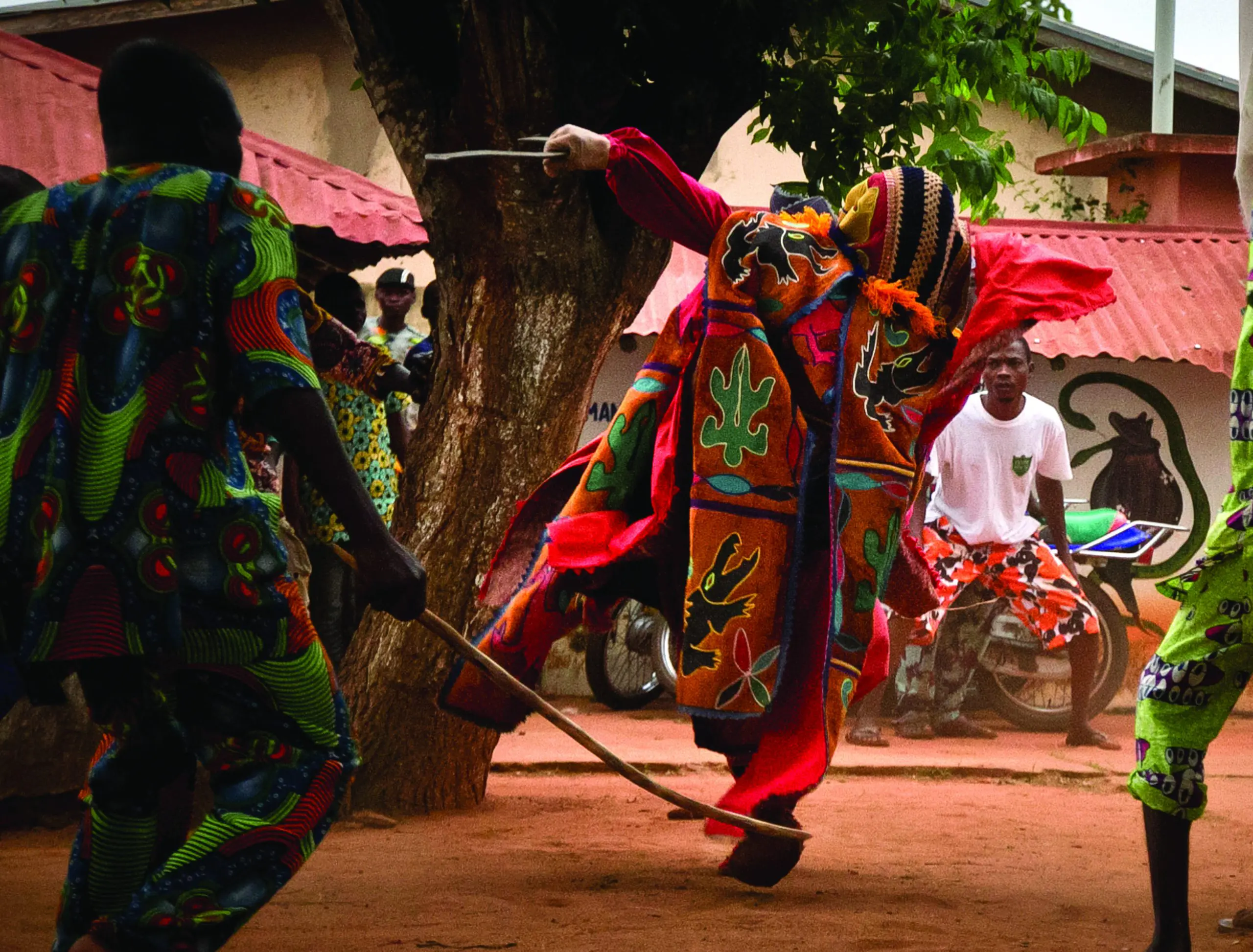
AKORAYE DAY
Akoraye Day is an important annual event that embodies the cultural essence and developmental aspirations of the Modakeke community in Osun State, Nigeria. The celebration reflects the unity, resilience, and rich heritage of the people, drawing participants from within the community and the diaspora. It is a time when Modakeke comes alive with vibrant activities that promote cultural pride and foster a sense of collective responsibility for the town’s growth.
The event is characterized by colorful cultural displays, including traditional dances, music, and attire, which provide a platform to showcase the unique identity of the Modakeke people. Beyond the festivities, Akoraye Day is a call to action for community development. It often features fundraising efforts aimed at improving infrastructure, education, and other aspects of communal life. Scholarships are awarded to deserving students, emphasizing the community’s commitment to nurturing future leaders and reducing educational barriers.
Akoraye Day is not just a celebration but also an opportunity for reflection and planning. Public lectures delivered by distinguished speakers provide insights into themes such as unity, resilience, and sustainable development, inspiring the community to work collectively towards common goals. The event also serves as a venue to honor individuals whose contributions have significantly impacted Modakeke, reinforcing the values of service and leadership.
This gathering strengthens the bonds between Modakeke indigenes worldwide, promoting collaboration and networking to address shared challenges and leverage opportunities for the town’s progress. Akoraye Day remains a cornerstone of Modakeke’s cultural and developmental agenda, uniting its people in joy and shared purpose while reinforcing their commitment to preserving their heritage and advancing their community.
EGUNGUN FESTIVAL
Egungun Festival is a traditional celebration in Modakeke that pays homage to ancestral spirits. It’s rooted in a deep reverence for our ancestors, this festival is a colorful and spiritually significant event that takes place in July/August of every year.
This festival is an age-long practice with various significance. It is deeply rooted in our belief in the continuity of life beyond physical death. The festival serves as a means of connecting with and honoring deceased ancestors, seeking their guidance, blessings, and protection for the community.
One of the most striking aspects of the Egungun Festival is the elaborate and vibrant costumes worn. These costumes, often made from colorful fabrics, are adorned with intricate beadwork, cowries, and other symbolic elements. The attire is not only a visual spectacle but also holds deep spiritual significance, representing the spirits of the ancestors.
Central to the festival is the energetic and rhythmic dance performed by participants wearing the Egungun costumes. The dance is accompanied by drumming, chanting, and other musical expressions. Each movement is carefully choreographed and laden with symbolism, telling stories of the community’s history, traditions, and ancestral connections.
Elders and religious leaders play a crucial role in leading prayers and rituals, seeking the blessings and protection of the ancestors for the community. The Egungun Festival is not only a spiritual event but also a celebration of community and cultural identity. It fosters a sense of unity among community members as we come together to honor our shared history and heritage. The festival often attracts visitors, providing an opportunity for cultural exchange and understanding.
In a rapidly changing world, the Egungun Festival stands as a testament to the resilience of cultural traditions. We actively strive to preserve and pass down the rituals and customs associated with the festival to future generations, ensuring that our rich cultural heritage remains alive and vibrant.
Modakeke has a number of Egunguns, ranging from Ologbojo, Elebiti, Ogbabu, Foola, Lowolegbe, Elegun-meje, etc.
OGUN FESTIVAL
The Ogun Festival is a celebration dedicated to Ogun, the powerful deity associated with iron, war, labor, and protection, as well as the patron saint of hunters, blacksmiths, and those involved in various forms of craftsmanship. Ogun is the god associated with the establishment of Modakeke, from whom the stool of Ogunsua was coined – Ogunsuwapo, meaning Ogun binds us together.
This annual event is a vibrant and significant expression of traditions, embodying the strength, resilience, and communal spirit of the people.
The festival is marked by a series of rituals and ceremonies performed to invoke the blessings and protection of Ogun. Participants engage in prayers, dances, and processions, often accompanied by rhythmic drumming and chanting. The atmosphere is charged with energy as devotees come together to pay homage to the deity.
Central to this festival is the symbolism of iron, representing strength, craftsmanship, and the transformative power of the deity. Iron tools and objects, such as machetes and other implements associated with Ogun, are prominently featured in the festivities. The use of iron is not only symbolic but also serves as a practical reminder of Ogun’s influence over metalworking and technology.
The Ogun Festival fosters a sense of unity and solidarity within the community. Families and neighbors collaborate in the preparation and execution of the festival, reinforcing social bonds and shared cultural identity. The communal aspect of the celebration extends beyond religious and spiritual dimensions, embodying the collective strength of the community.
In addition to its religious significance, the Ogun Festival plays a crucial role in preserving our culture. Through the vibrant expressions of dance, music, and rituals, the festival serves as a living testament to our cultural richness and diversity.
As we participate in the festivities, we not only pay homage to Ogun but also celebrate the resilience, strength, and communal spirit that define us. May the rhythms of the drums, the clanging of iron, and the collective prayers resonate with the enduring legacy of Ogun and the vibrant tapestry of our culture.
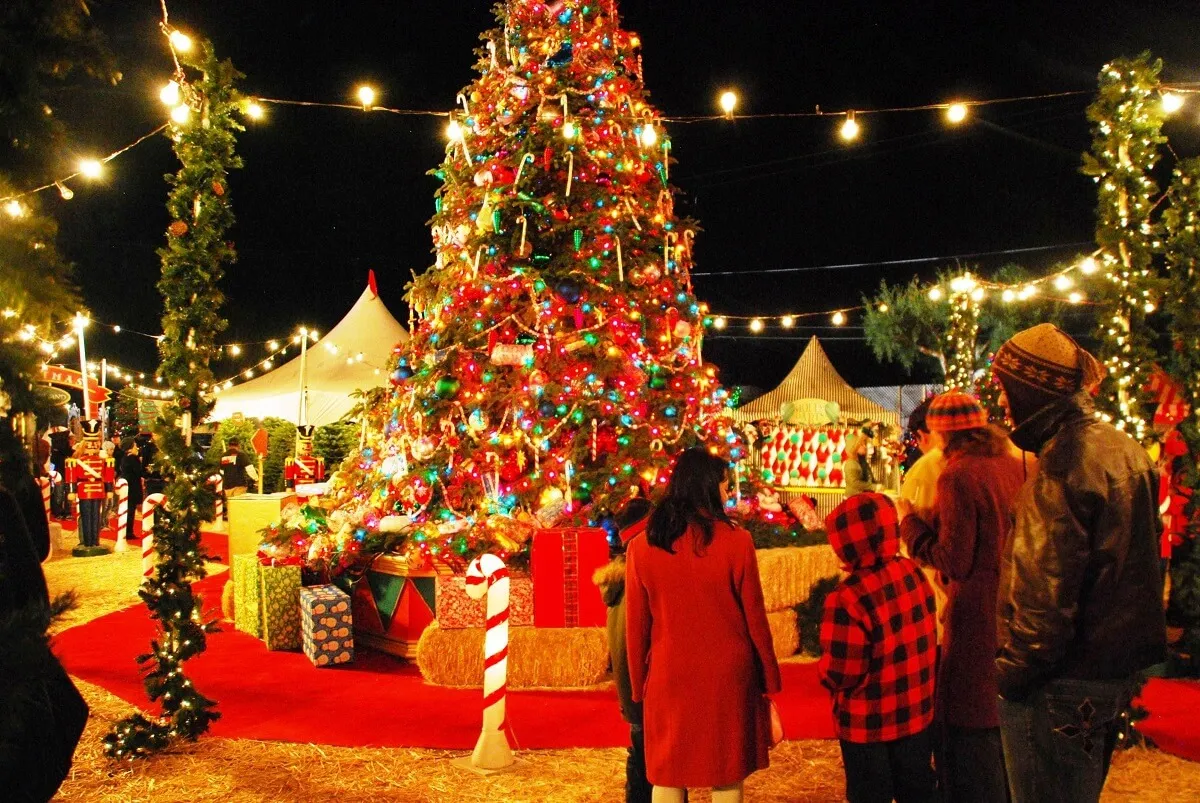
CHRISTMAS CELEBRATION
Step into the heart of Modakeke during the Christmas season, and you’ll find a community abuzz with a celebration that goes beyond the familiar festive cheer to blend cultural nuances, warmth, community spirit, and the universal joy of the season. The Christmas celebration in Modakeke is not only a time for religious observance and holiday, but a vibrant tapestry woven with tradition, community bonds, and a unique Modakeke flavor.
Christmas in Modakeke, as in many other parts of the world, marks the commemoration of the birth of Jesus Christ. The community engages in religious services, prayer sessions, and reflections on the spiritual aspects of the season. Churches become vibrant hubs of activity, adorned with festive decorations, and resonating with hymns and carols that fill the air with a sense of peace and joy.
As Christmas approaches, the streets of Modakeke transform into a kaleidoscope of colors. Houses are adorned with twinkling lights, festive decorations, and nativity scenes. The community comes together to create a festive atmosphere, enhancing the sense of unity and shared celebration.
No Christmas celebration in Modakeke is complete without indulgence in traditional Yoruba cuisine. Families prepare and share special meals that are not only delicious but also hold cultural significance. Whether it’s the aromatic jollof rice, fried rice, or a variety of local delicacies, food plays a central role in bringing people together during this festive season.
The spirit of celebration is brought to life through cultural performances that showcase the richness of Modakeke’s traditions. Dance troupes, music ensembles, and drama groups often take center stage, presenting performances that blend traditional Yoruba elements with the joyous themes of Christmas.
Christmas is a time for giving and sharing, and Modakeke embraces this spirit wholeheartedly. Families exchange gifts, and there is a strong emphasis on acts of kindness and charity. Whether through organized community initiatives or individual efforts, the people of Modakeke come together to support those in need, embodying the true essence of Christmas.
Above all, Christmas in Modakeke is a time for family bonding and strengthening community ties. It’s a season when people take a break from their daily routines to spend quality time with loved ones. The warmth of shared meals, the laughter of children, and the exchange of heartfelt greetings create an atmosphere of love and togetherness.

SALAH CELEBRATION
Salah season is a time to witness a unique blend of religious devotion, communal joy, and the rich cultural tapestry that defines our vibrant town. The celebration of Salah in Modakeke is a reflection of the town’s diverse cultural influences, where the Islamic traditions of Eid al-Fitr and Eid al-Adha seamlessly intertwine with the local customs, creating a celebration that is both spiritually significant and culturally rich.
As the auspicious occasion of Salah approaches, Modakeke undergoes transformation. Homes are adorned with colorful decorations, and the streets bustle with the energy of preparation. Families engage in the meticulous planning of festive feasts, and the sweet aroma of traditional dishes fills the air. The meticulous attention to detail in the festive decorations reflects both religious fervor and a celebration of Modakeke’s unique cultural identity.
One of the distinctive features of Salah in Modakeke is the harmonious blend of Islamic traditions with local customs. The town is adorned with traditional fabrics, vibrant colors, and local artistry, creating a visual spectacle that mirrors the cultural diversity of the community. This fusion of influences adds a special charm to the celebrations, making it a truly Modakeke experience.
Salah is a time for unity and communal solidarity in Modakeke. Families come together to share the joy of the occasion, exchanging visits, and extending warm greetings. The spirit of generosity is palpable as individuals, irrespective of religious background, partake in the festivities, reinforcing the town’s ethos of inclusivity and mutual respect.
The central focus of Salah in Modakeke is, of course, the religious aspect. The Central Eid-Praying Ground at Oke Yidi alongside other praying grounds host special prayers, sermons, and communal gatherings where the teachings of Islam are shared and reflected upon. The resonance of the call to prayer echoes through the town, serving as a reminder of the spiritual significance that underpins the celebrations.
The joy of Salah extends to the culinary realm, where Modakeke’s traditional dishes take center stage. Families and communities prepare a variety of special dishes, sharing the bounties of the occasion with neighbors and those in need. The aroma of delicacies such as jollof rice, kebabs, and local sweets permeates the air, tantalizing the taste buds and adding to the festive atmosphere.
